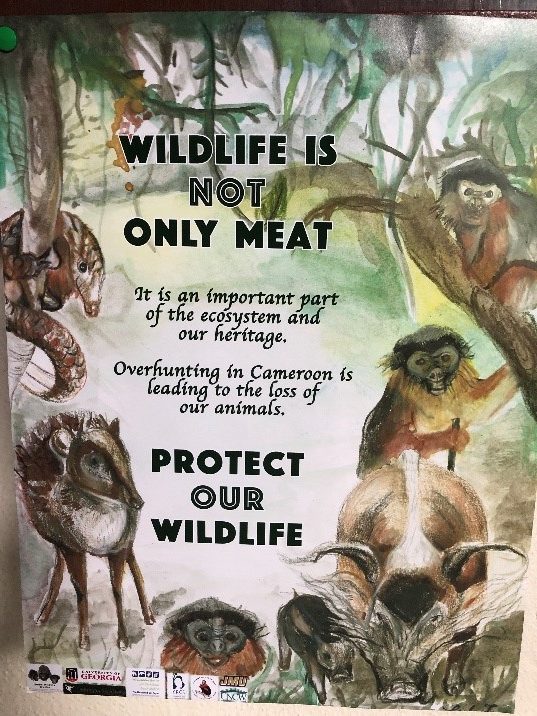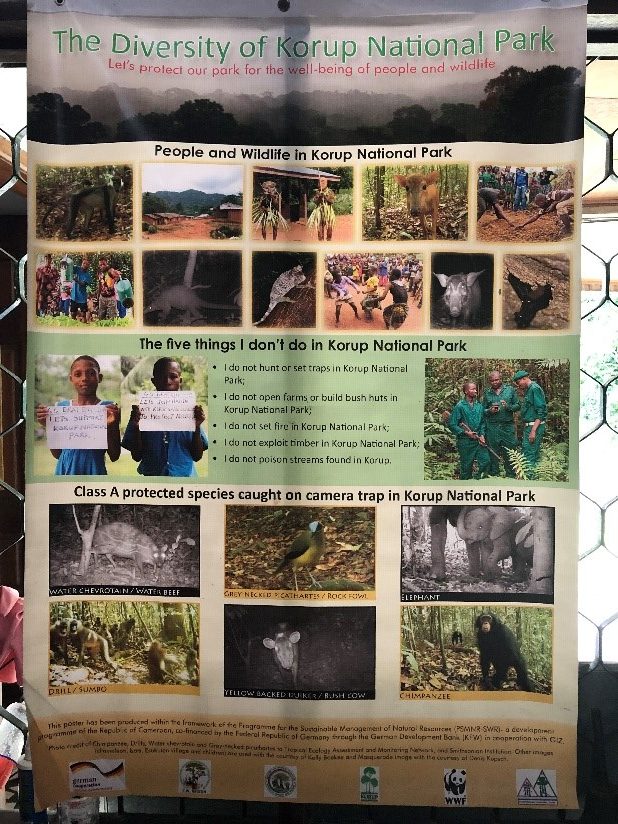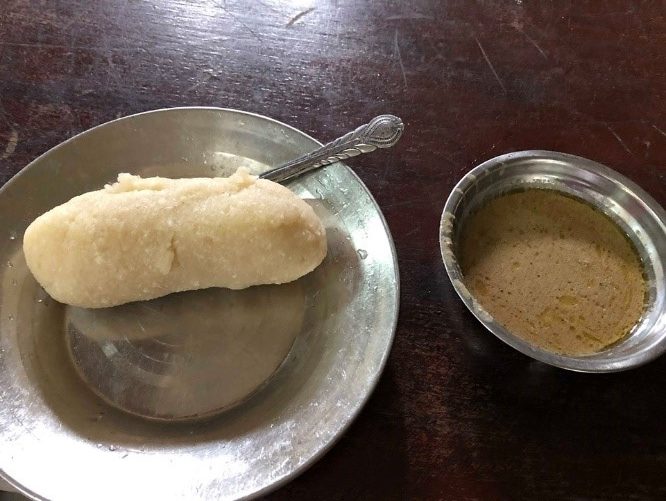Volunteering at Limbe Wildlife Center
For three weeks during the month of August 2019, I got the incredible opportunity to volunteer at the Limbe Wildlife Centre in Cameroon. The LWC initially was the Victoria Zoo until 1993 when a partnership was born between the Pandrillus Foundation and Cameroon’s Ministry of Forestry and Wildlife in an effort to protect the local biodiversity and raise awareness about conservation. The Victoria Zoo then became a wildlife center focused on wildlife rehabilitation and conservation education. The animals there were orphaned as a result of human-wildlife conflicts such as bushmeat hunting or the pet trade. These are major issues in Cameroon and throughout Africa. Animals are often killed both legally and illegally for meat in unsustainable ways, and the infants are kept as pets in unfit living conditions for wild species. When they are rescued by authorities and brought the LWC, the animals are treated by their veterinary team and the rehabilitation process starts as they are integrated into conspecific groups and monitored by their team of specialists. Their mission is based not only on rehabilitation and release, but on educating the population to change views and opinions on wildlife and conservation so that these animals will be safe in the wild for as long as possible.



My job as a volunteer at the Centre was that of an assistant animal keeper. During my time there, I would get to assist keepers throughout the five different sections at the sanctuary: gorillas, chimpanzees, guenons and mangabeys, Papios (drills, mandrills, baboons), and quarantine. Mornings at the Centre would begin with friendly greetings, handshakes, and hugs shared with everyone nearby. Limbe is indeed the friendliest town I have ever visited.

Working giving enrichment as a volunteer; masks and gloves are very important to prevent the spreading of zoonotic diseases!
One of the Head Keepers, Jonathan or Victor would then begin the morning with a general team meeting to discuss important news, tasks for the day, and to assign sections to all keepers. Once assigned to a section, the morning consisted of feeding, providing browse, and cleaning the enclosures of all animals. This experience surely shows how each species has their own little quirks. Chimps are definitely the loudest (and debatably the messiest to clean after), the gorillas hate being stared at, and monkeys oftentimes just want to cause mischief by taking your supplies! This experience gave me an appreciation for the quirks among individuals in a species, but even more so for the distinct personality traits between individuals. We all eventually formed our opinions on favorites and developed closer bonds more with some animals than with others.




Once all of that was finished, volunteers were usually asked to help create enrichment for the day.
Enrichment is environmental stimuli (often nutritional and structural) designed to improve the wellbeing of sanctuary animals by keeping them mentally and physically engaged and stimulating natural behavior they would be doing in the wild. For enrichment, we often made “leaf packs” (snacks wrapped in leaves and twine that primates must unpack to eat), as well as re-used and washed plastic bottles filled with browse and other nutritional supplements, boxes, and other variations. Some days the chimpanzees (Pan troglodytes) are given sticks to remove honey from crevices on a termite mount, to practice their tool use, or are given ice blocks with treats to try to break and melt. The idea is to induce critical thinking and problem-solving. At noon, everyone at the Centre breaks for lunch. A local Cameroonian dish is served in the meeting hall every day for volunteers and staff. This varies daily but sticks to a few main ingredients: rice and beans are popular, fish (as Limbe is a fishing town), oils, spices, and a traditional African meal fufu was very common. Fufu has multiple variations depending on what it is made with, but it is basically a dough-like food used to fill stomachs when food is scarce. The Cameroonian lunches were not my favorite part of the experience, but I was so grateful for people to share with me their food and culture.


In the afternoons, keepers were tasked with observing their animals for monitoring, which freed up time for volunteers to work on maintenance projects around the Centre with the construction team. During the time I was there, the LWC was working on building a new rehabilitation aviary for the rescued African grey parrots (Psittacus erithacus) in their care. So, my afternoons mostly consisted of helping in construction and painting. Other options included harvesting browse for animals, preparing food, etc. At one point, I was even offered the opportunity to help with observations. The LWC is dedicated to being knowledgeable about the specific animals in their care and providing the best possible care, so I was able to watch a group of guenons consisting of two species, mona monkeys (Cercopithecus mona) and putty-nosed guenons (Cercopithecus nictitans), to try to problem-solve some social issues they were having. Close observation and research are the best ways to learn about animals to make adaptations to their environments or social groups for their benefit. This gave me practice for my future career in primate research and helped them prevent monkey injuries due to conflict. If you are a long-term volunteer with the LWC, you have the option to start your own research project based on the observation of animals in their care.



After work was always pleasant, returning to the volunteer house to shower, eat, and rest. Of course, it was different from my luxurious life in the US in almost every way. Shower water had to be warmed on the stove, and mosquito nets hung over the bed, but it truly brought one back to a simpler place in time.



Overall the work was hard and the days long but working at the sanctuary gave one a sense of pride in their work and a sense of meaning. Coming back to the house at the end of the night has a sense of camaraderie and belonging. All the little outside worries that exist in western society seemed to fade and no longer matter. With upbeat Cameroon music and delicious grilled chicken smell, and the extreme friendliness of locals in the air, it could truly make one rethink the meaning of home.
TotalAdventure does not currently have adventures in Cameroon, but we invite Cameroon companies to apply. TotalAdventure has some great trips to South Africa https://bit.ly/2WPNkPb




Comments